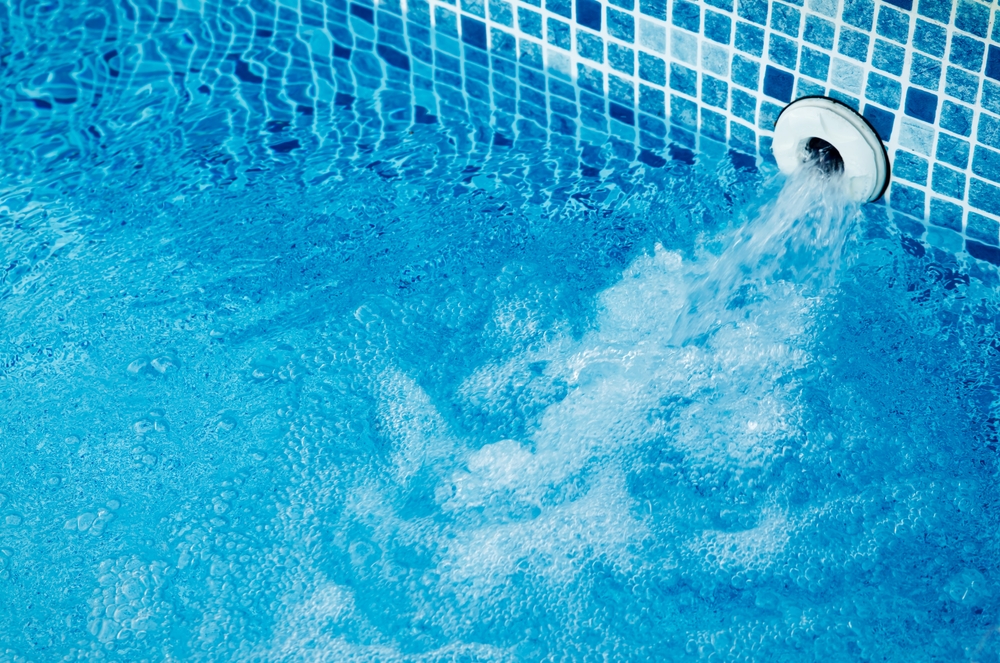
Proper water circulation is essential for maintaining a clean, healthy, and balanced pool or pond environment. Effective circulation helps distribute chemicals, remove debris, prevent stagnation, and promote oxygenation, contributing to optimal water quality and overall ecosystem health. In this blog, we will discuss the importance of proper pool and pond circulation and why understanding water circulation is vital for the maintenance and longevity of aquatic systems.
The Basics of Water Circulation
Water circulation refers to the movement of water within a pool or pond, facilitated by various components such as pumps, filters, skimmers, and jets. Circulation plays a crucial role in maintaining water quality by distributing chemicals evenly, capturing debris for filtration, preventing surface scum buildup, and improving oxygen levels for aquatic life. By creating a continuous flow of water throughout the aquatic system, proper circulation helps prevent water stagnation, algae growth, and bacterial proliferation, ensuring a clean and balanced environment for plants, fish, and other aquatic organisms.
Enhancing Water Quality and Clarity
One of the primary benefits of proper pool and pond circulation is the enhancement of water quality and clarity. Effective circulation helps prevent the formation of algae blooms, bacteria colonies, and other waterborne contaminants by promoting water movement and filtration. By keeping the water in motion and passing it through filtration systems, circulation removes suspended particles, organic matter, and other pollutants, leading to clearer, cleaner water that is visually appealing and safe for aquatic life.
Improving Chemical Distribution and Balance
Proper water circulation also plays a crucial role in distributing chemicals evenly throughout the pool or pond, ensuring that disinfectants, pH adjusters, and other water treatments are effectively dispersed and maintained at appropriate levels. Without adequate circulation, chemicals may become concentrated in certain areas or fail to reach all parts of the water body, leading to uneven distribution and potential water quality issues. By promoting uniform mixing and distribution of chemicals, circulation helps maintain proper water balance, prevent chemical imbalances, and support a healthy aquatic ecosystem.
Preventing Stagnation and Dead Zones
Stagnant water and dead zones are common issues in pools and ponds that lack proper circulation. Stagnation occurs when water remains still for extended periods, allowing debris to accumulate, oxygen to deplete, and contaminants to concentrate, creating an unhealthy environment for aquatic life. Dead zones are areas in the water body where circulation is limited or nonexistent, leading to poor oxygenation, nutrient buildup, and reduced water quality. Effective circulation helps prevent stagnation and dead zones by keeping the water in motion, aerating and oxygenating it, and promoting the removal of debris and pollutants for a healthier aquatic habitat.
Promoting Oxygenation and Aeration
Oxygen is essential for the survival of plants, fish, and other aquatic organisms in pools and ponds. Proper circulation promotes oxygenation by moving the water’s surface, allowing for gas exchange with the atmosphere, and creating turbulence that introduces oxygen into the water column. Aeration, or the infusion of air into the water, is another benefit of circulation that helps increase oxygen levels, reduce carbon dioxide buildup, and improve water quality for aquatic plants and animals. By enhancing oxygen levels through circulation, pools and ponds can support a thriving ecosystem and maintain a balanced aquatic environment.
Maintaining Water Temperature and Consistency
Proper water circulation can also help regulate water temperature and maintain consistency throughout the aquatic system. By circulating the water and creating movement, heat is distributed evenly, preventing temperature variations that can stress aquatic organisms or promote algae growth. Circulation also helps mix water layers, preventing stratification and ensuring uniform temperature distribution, especially in deeper ponds where temperature variations can be more significant. By maintaining water temperature and consistency, circulation contributes to a stable and healthy aquatic environment for plants, fish, and other aquatic life.
Summary
Understanding the importance of proper pool and pond circulation is essential for maintaining a clean, healthy, and balanced aquatic environment. Effective water circulation promotes water quality and clarity, improves chemical distribution and balance, prevents stagnation and dead zones, promotes oxygenation and aeration, and maintains water temperature and consistency. By investing in quality circulation systems and ensuring proper water flow, filtration, and aeration, pool and pond owners can create a thriving ecosystem that supports aquatic life, enhances water quality, and provides a visually appealing and sustainable aquatic habitat. Embrace the significance of proper pool and pond circulation to optimize the health and longevity of your aquatic systems.
